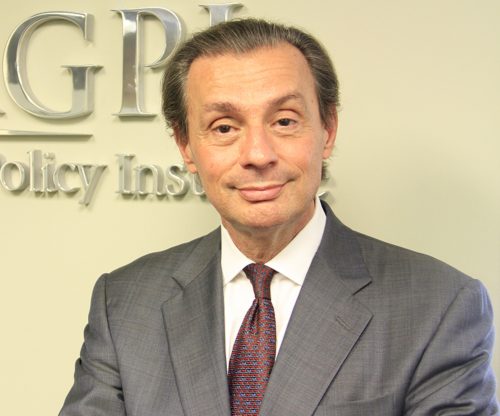Issue Briefs

Business in Africa goes through Morocco
Paolo von Schirach
MARRAKECH – Thanks to a partnership agreement between the Corporate Council on Africa and the Government of the Kingdom of Morocco, the city of Marrakech this year hosted the US –Africa Business Summit, the flagship yearly event organized by the Council. Why hold this US-Africa Summit in Morocco, a country that most people would place at the western edge of the Arab world, more Middle Eastern than African? This is not an accidental choice. The reason is that Morocco is in fact an African country. Furthermore, on account of its successful development journey and deep insights into Africa, Morocco can play now the strategically critical role of bridge between western business and Africa. Hence the venue selection. But more on this later.
This year it is different
The Council is a Washington, DC based private sector organization whose members are US companies with significant business interests in Africa. The Corporate Council on Africa routinely organizes major conferences with focus on Africa. However, this year in Morocco it is different.
There is energy in the air; and genuine optimism about real opportunities for American business investment in Africa, including partnering with African firms. Indeed, the scope of the Marrakech Business Summit was very ambitious. Topics for discussion included new modalities of project financing, energy investments, power generation and distribution projects, jobs growth strategies, agriculture, health care supply chains, infrastructure, and a lot more. The venue was literally packed. Participants came from all over Africa and the US.
Panels featured several senior US Government officials. They presented Prosper Africa, an unprecedented “all of government” initiative aimed at using government funds and market intelligence to mobilize and channel US private capital into viable investment opportunities in Africa. This new and in many ways revolutionary approach stems from the realization that only large scale private sector investments can reach the volume needed to move the development needle in Africa. There were major US companies in attendance or presenting: from UPS to Chevron, J&J and Pfizer. There was also a large number of cabinet level African policymakers from several countries, and CEOs of major African companies.
Africa is a business opportunity
This impressive level of engagement from America and Africa leads to only one possible conclusion. It seems that –finally– America woke up to the reality that Africa is a vast continent with more than 1.4 billion people, most of them young and tech-savvy, with an enormous economic potential.
Yes, many Africans are still very poor. Millions do not have access to electricity, and therefore are condemned to subsistence conditions. Some African countries are unstable due to unresolved conflicts, domestic and regional. Besides, Islamic terrorism created serious security threats in northern Nigeria, Mozambique and Somalia. All this is true.
However, we should place these negative elements in perspective. Africa is an enormous continent, with 54 countries. Most of them are at peace. Some are experiencing significant levels of economic growth. Most of them have a young, forward looking population. Furthermore, there are now tens of millions of Africans with a higher education. Many speak good English. And now, thanks to large capital investments in fiber optic cables made in recent years, tens of millions of Africans are plugged into the global economy via broadband internet. The digital divide is withering away.
Besides, Africa’s infrastructure is improving. There are new freight railways that simplify the transportation of physical goods. Many border posts have been modernized up to international standards, this way simplifying intra-African trade. African airlines, including Ethiopian Airlines, South African Airways, and Kenya Airways are connecting more and more countries within Africa.
A new Africa welcomes investors
In a word, this is a new Africa. What came out of the Marrakech Summit is that the message has been received and understood by both governments and international investors. It is therefore high time for the American business community to toss away the old stereotypes of Africa as a perennially backward continent condemned to systemic underdevelopment on account of poverty, corruption, and political violence. Because of these misperceptions, for a very long time corporate America and the US investment community neglected Africa. With the exception of mining and energy companies looking for oil and gas and specific minerals, regardless of country, very few American private sector companies were interested in exploring investment and business opportunities in Africa, assuming that there would be none worth considering.
When it comes to the US Government, the United States Agency for International Development, USAID, and other government agencies have always been active in Africa. But this was all about aid programs, humanitarian assistance, disaster relief, delivered via grants. These activities were not driven by business and investments interests.
But now it is all different. The US government has new initiatives and new tools. Power Africa is about large scale US investments in power generation and distribution in Africa. The Africa Trade and Investment (ATI) Program, under the banner of the large, multi-agency effort US Government called Prosper Africa mentioned above is about using significant government resources to identify viable investment opportunities in Africa that will get the interest of many American and international private sector companies looking for profitable new ventures.
Put it simply, the US Government is on a mission to bring American companies to invest in Africa, knowing full well that the private sector will come to Africa only if CEOs and Boards can be convinced that there are credible investment opportunities in the continent, leading to real profits.
Morocco’s role
In all this the role of Morocco –the host country for this 2022 Summit– should be properly highlighted and understood. For most Americans Morocco is an exotic tourist destination in North Africa. Of course, Morocco is a beautiful country, and therefore tourists flock there.
However, Morocco is a lot more than that. After years of serious efforts aimed at promoting economic and social development which included many privatizations, Morocco today is a middle income country with state-of-the-art industrial parks, polytechnic universities and a multilingual, (Arabic, French and English), well-educated, young labor force. There is a highly developed automotive sector. The World Economic Forum listed Morocco as the most competitive economy in North Africa. Last but least, Morocco leveraged its enormous phosphate deposits to develop OCP, a diversified fertilizer corporation that also provides advanced agriculture sector advisory services to the countries, mostly African, where it exports its products.
Morocco is in Africa
And this is only half the story. The other half –and here we go back to the reason why this year the US-Africa Summit was held in Marrakech—is that over the years Morocco developed and strengthened political and business ties with many countries in sub-Saharan Africa. This may sound counterintuitive for those who think of Morocco as an Arabic speaking country in North Africa that looks mostly east at other Arab countries for political, business and trade relations.
Yes, Morocco is in North Africa. But it is now fully plugged into the African continent. Its banks operate there and its sovereign investment fund, Ithmar Capital, is now in a dialogue with funds from other African countries aimed at joining forces in order to create synergies leading to more transformational investments.
And this is not all. Morocco is a country that operates according to accepted western free market principles and norms. Its economy is now connected to the US via a free trade agreement. The Millennium Challenge Corporation, (MCC), a US Government agency recently signed an agreement with the government of Morocco leading to the financing of new industrial parks that will host promising Moroccan enterprises. Hence the notion that Morocco is a serious partner that will attract additional US investments, while the country can also play a critical role as bridge and connecting point between America and the economies of the African continent.
The road ahead
That said, while the mood at the Marrakech Summit was optimistic, there are challenges ahead. Many African countries must improve their “investment climate”. Reforms are needed in areas such as incorporations, simplification of permits and licenses, transparency of the legal system, streamlining of customs procedures, and a lot more. Many countries have inadequate infrastructure. Not enough good roads and antiquated logistics. And the list goes on.
But, overall, despite these challenges, Africa is now firmly plugged into modernity. Thanks to the expansion of broadband internet, Africa is now connected to and an integral part of the global economy. Almost every African has a smart phone. And there is remarkable technological innovation. For instance, Kenya and other countries developed their own technologies for efficient and reliable mobile banking solutions, now available to millions of users. In Kenya and other countries in East Africa the dominant system is M-PESA, “mobile money” in swahili. While the road ahead may be bumpy, a continent of 1.4 billion consumers, among them many entrepreneurs willing to engage with western counterparts, is open for business. It would most unwise not to look seriously into these opportunities
 |
|